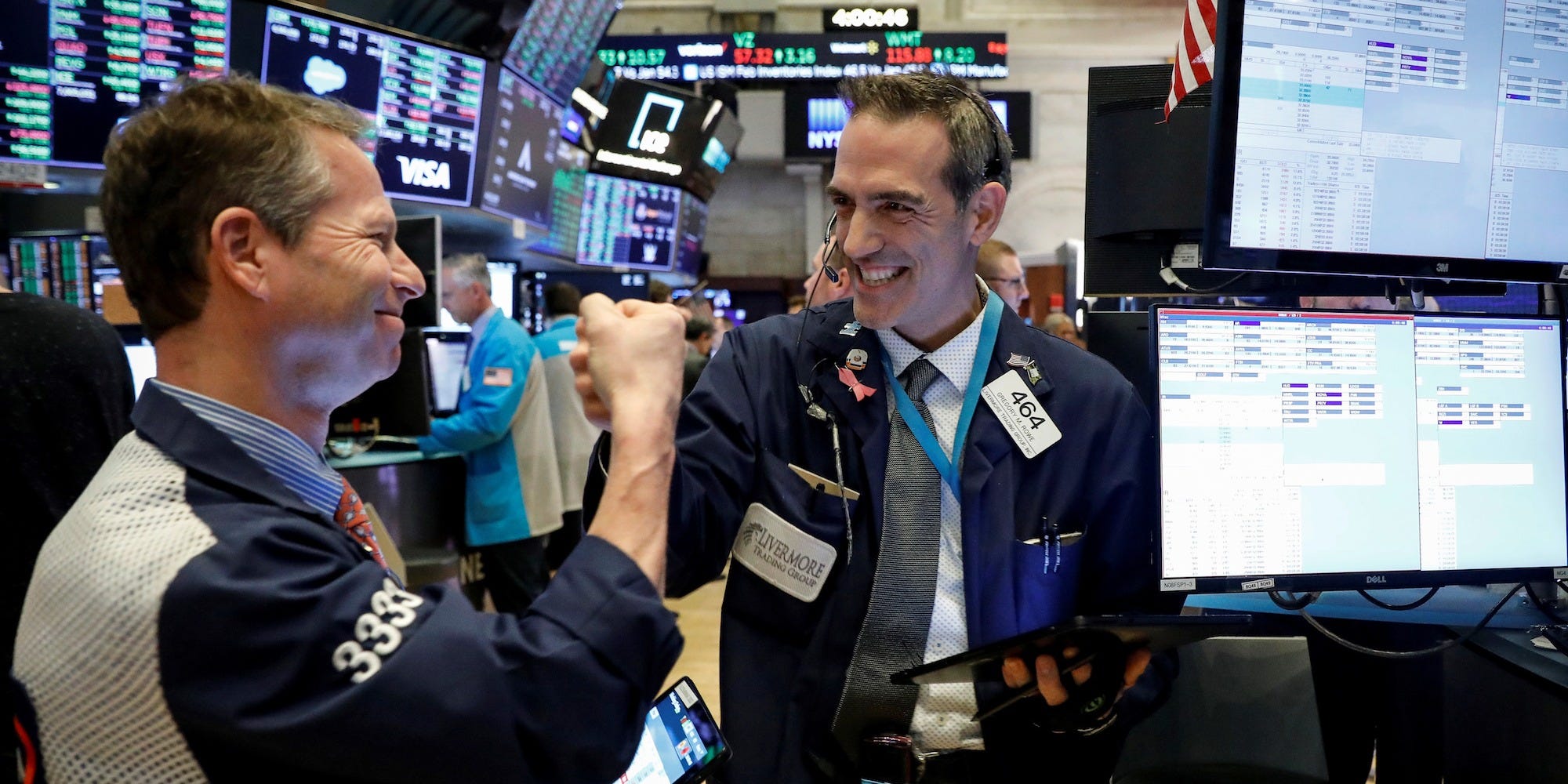- The stock market is on the verge of hitting record all-time highs, with the S&P 500 trading less than 1% below its intraday high of 3,393 on Tuesday.
- Meanwhile, the Nasdaq 100 has already cruised to all-time highs as technology stocks have led the recovery since the market bottom on March 23.
- At the same time, the underlying economy is suffering, with the unemployment rate above 10%, and second quarter GDP being the worst on record, with a decline of 32.9%.
- Given the stark difference between the stock market and the economy, LPL provides four reasons why the stock market can be so disconnected from the underlying economy.
- Visit Business Insider’s homepage for more stories.
As stocks hit record all-time highs, the underlying economy is still showing signs of weakness due to the rolling economic shutdowns caused by the COVID-19 pandemic.
The unemployment rate remains above 10%, and second quarter US gross domestic product of 32.9% was the worst quarterly reading in history.
Meanwhile, the S&P 500 is trading less than 1% below its all-time high of 3,393 on Tuesday, and the Nasdaq 100 has already cruised to record all-time highs as technology stocks have led the market recovery since the March 23 bottom.
So how can there be such a stark disconnect between record highs in the stock market and an underlying economy that is the worst since the Great Depression?
In an analyst note published on Monday, LPL explained the disconnect and attempted to make sense of the recent market rally with four reasons outlining the difference between the markets and the economy.
1. The pandemic has an end date: Markets are forward looking, and right now the stock market "is expressing confidence that the pandemic will end eventually with a vaccine, and with help from better treatments in the interim," said LPL, adding that there are "many shots on goal."
This echoes commentary from Fundstrat's Tom Lee who said in July that there are 133 shots on goal for a successful vaccine and it's more than likely at least one of them is successful, which would lead to a binary market event that could power stocks to new highs.
2. Low interest rates: While stocks are expensive, they actually look cheap when you compare them to US Treasuries, with the 10-year currently yielding around 0.6%. "When discounting future profits back at such low interest rates, equity valuations get a significant boost."
Again, this thinking is aligned with recent commentary from Fundstrat's Tom Lee, who explained in early August that while large-cap tech stocks are trading at a price to earnings multiple of 20x to 30x, that looks cheap relative to the 10-year US Treasury, which according to Lee trades at a price-earnings multiple of 180x, and corporate bonds, which trade at a price-earnings multiple of 40x.
3. Massive monetary stimulus: Easy-money stimulus policies from the Federal Reserve have driven the money supply sharply higher, as measured by M2, according to LPL. "Some of that money has found a home in the stock market," said LPL, adding that, historically, money supply growth and stock prices have moved in tandem.
4. Support from the winners: Technology stocks that have enabled a smooth transition for employees to work from home have thrived in the current market environment, as evidenced by the strong earnings reports from Facebook, Apple, Amazon, and Alphabet in late July. "The good news extends beyond those companies, with about 40% of the S&P 500 classified as technology, digital media, or e-commerce," LPL explained.
LPL went on to remind investors that higher stock prices during recessions "are not out of the ordinary." According to the research firm, stocks have moved higher during seven of the past 12 recessions dating back to World War II, with a median advance of 5.7%.
So while the underlying economy is weak and is in the process of slowly recovering from the sharpest decline since the Great Depression, don't be surprised if stocks continue to hit record highs.
